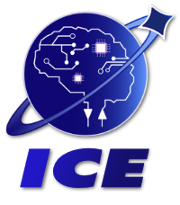Speaker
Dr
Steve Chien
(Jet Propulsion Laboratory, California Institute of Technology)
Description
NASA JPL has been employing Artificial Intelligence in support of space exploration. These efforts have been ongoing for many years: NASA’s Earth Observing One mission was controlled by AI software – the Autonomous Sciencecraft and Earth Observing Sensorweb – for more than a dozen years, linked with other satellites and scores of ground assets to track volcanism, floods, wildfires and the cryosphere. In the field of astronomy, machine learning is also serving to triage vast amounts of radio and optical data, enabling scientists to focus on the most relevant results. AI scheduling has also been playing a crucial support role for space operations – including overseeing the Deep Space Network, science operations and downlink/data management for JPL elements of ESA’s Rosetta comet-chaser and NASA’s Mars rovers – including the 2020 Mars Rover now in development. And as well as having crucial support roles on the ground, AI will also be leaving Earth: its role in future mission concepts to ocean worlds and, eventually, other stars will be highlighted.
Primary author
Dr
Steve Chien
(Jet Propulsion Laboratory, California Institute of Technology)

